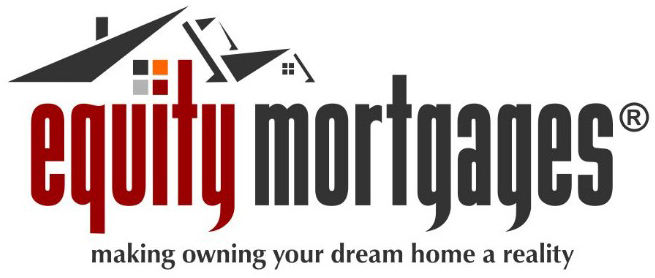A Comprehensive Overview to Choosing the Right Equity Release Mortgages for Your Demands
Selecting the appropriate equity Release mortgage is a considerable decision for lots of home owners. It entails understanding different items and evaluating personal economic demands. With alternatives like life time home mortgages and home reversion plans, the course can seem complex. Secret considerations include rate of interest and versatility. As individuals navigate this landscape, considering possible dangers and advantages becomes important. What factors should one prioritize to guarantee the very best result?
Recognizing Equity Release Mortgages
Equity Release mortgages offer a financial service for home owners aiming to access the worth secured in their properties. Primarily developed for people aged 55 and over, these mortgages allow them to convert part of their home equity right into cash while remaining to live in their homes. Home owners can utilize these funds for various functions, such as supplementing retired life revenue, moneying home renovations, or covering medical care expenses. The core concept behind equity Release is that the financing is paid off upon the homeowner's death or when they move into long-term treatment, whereupon the property is usually sold to resolve the debt. This technique makes it possible for individuals to enjoy the advantages of their home's worth without requiring to move. It is important for potential borrowers to comprehend the implications of equity Release, including prospective influences on inheritance and ongoing economic commitments, prior to choosing.
Kinds Of Equity Release Products
When checking out equity Release products, it is important to understand the primary types readily available. Life time home loans, home reversion schemes, and drawdown strategies each deal one-of-a-kind features and advantages. Examining these alternatives can assist individuals in making educated economic decisions concerning their residential property.
Life Time Home Mortgages Clarified
Lifetime home loans represent among one of the most common forms of equity Release products available to home owners in retirement. This sort of home loan enables people to obtain versus the worth of their home while preserving ownership. Generally, the car loan and passion accrued are repaid when the homeowner passes away or relocates into long-term care. Debtors often have the choice to choose in between fixed and variable rates of interest, along with whether to make monthly repayments or let the interest roll up. The quantity available to borrow generally depends on the home owner's age and property worth. This monetary option can supply senior citizens with needed funds for various needs, including home improvements or additional revenue, while enabling them to continue to be in their homes.
Home Reversion Schemes

Drawdown Plans Introduction
Drawdown strategies stand for an adaptable alternative within the spectrum of equity Release items, allowing property owners to access their residential property's worth as required. These strategies make it possible for individuals to Release a part of their home equity incrementally, instead of obtaining a round figure upfront. This versatility can be especially valuable for taking care of finances with time, as consumers just pay rate of interest on the amounts they withdraw. Usually, drawdown plans include a pre-approved limitation, making sure that homeowners can access funds when necessary without reapplying. Additionally, this method can help alleviate the impact of compounding interest, as less money is borrowed. Overall, drawdown plans provide to those seeking monetary versatility while maintaining control over their equity Release trip.
Key Variables to Think About
When choosing an equity Release mortgage, a number of key factors necessitate mindful consideration. Rate of interest contrast, the loan-to-value ratio, and the versatility of features supplied can substantially influence the viability of an item. Examining these components will help people make notified choices that line up with their financial objectives.
Rates Of Interest Contrast
Navigating the landscape of equity Release home mortgages calls for careful consideration of rate of interest prices, which play an important role in determining the general expense of the funding. Borrowers need to compare set and variable prices, as repaired prices provide security while variable rates can change based on market problems. Furthermore, the timing of the rate of interest lock-in can substantially impact the complete repayment amount. Potential borrowers should likewise review the interest rate (APR), that includes different charges and prices related to the mortgage. Comprehending the effects of different rates of interest will certainly enable individuals to make educated choices tailored to their financial circumstance. Inevitably, an extensive evaluation of these aspects can bring about more beneficial equity Release outcomes.

Loan-to-Value Proportion
The loan-to-value (LTV) ratio offers as a vital statistics in the domain name of equity Release home loans, affecting both eligibility and loaning capacity. It is determined by dividing the amount of the financing by the appraised worth of the property. Normally, a greater LTV proportion indicates a greater danger for lending institutions, which can result in more stringent lending requirements. A lot of equity Release items have specific LTV limitations, commonly determined by the age of the customer and the value of the residential property. LTV proportions typically range from 20% to 60%, depending on these elements. Recognizing the effects of the LTV proportion is essential for customers, as it directly impacts the amount they can access while ensuring they stay within risk-free borrowing limitations.
Versatility and Attributes
Understanding the adaptability and attributes of equity Release home mortgages is crucial for consumers looking for to optimize their monetary choices. Different products provide varying levels of adaptability, such as the capacity to make partial settlements or the choice to take a swelling amount versus routine withdrawals. Customers ought to also consider the portability of the home loan, which allows them to transfer it to a new property if they make a decision to move. Additional attributes like the capability to include household participants or the choice for a no-negative-equity guarantee can enhance security and assurance. Eventually, evaluating these variables will help consumers choose a plan that straightens with their lasting economic objectives and personal circumstances.
The Application Refine
Exactly how does one navigate the application procedure for equity Release home loans? The trip starts with evaluating qualification, which generally calls for the applicant to be at the very least 55 years old and possess a considerable section of their home. Next, people ought to collect needed documentation, consisting of proof of identity, revenue, and home valuation.Once prepared, candidates can approach a lender or broker focusing on equity Release. An economic advisor might additionally provide important support, making sure that all alternatives are thought about. Following this, the candidate sends an official application, that includes a detailed assessment of their monetary scenario and building details.The lender will then conduct an appraisal, which may include a home appraisal and discussions regarding the applicant's scenarios and requirements. The procedure culminates with a formal offer, allowing the applicant to review the terms before making a last choice. Clear interaction and understanding at each action are necessary for an effective application.

Costs and Charges Entailed
Countless costs and fees are connected with equity Release home loans, and prospective debtors need to recognize these financial considerations. There may be an application fee, which covers the lender's management prices. In addition, evaluation costs are often called for to analyze the property's well worth, and these can differ substantially based upon the home's dimension and location.Legal fees need to likewise be factored in, as debtors will certainly need a lawyer to navigate the legal aspects of the equity Release procedure. Some lenders might impose very early payment charges if the home mortgage is paid off within a particular term.It is important for consumers to completely review all prices connected with an equity Release home loan, as they can influence the overall worth of the equity being released. A clear understanding of these fees will certainly allow people to make educated choices
Prospective Threats and Benefits
Equity Release mortgages include a selection of expenses and costs that can influence a consumer's monetary scenario. They offer significant benefits, such as accessibility to funds without the need to offer the home, permitting customers to make use of the cash for discover here retirement, home renovations, or to support relative. Potential risks exist, including the decrease of inheritance for successors, as the lending amount plus passion have to be paid back upon the debtor's fatality or relocate right into long-term care. Furthermore, the residential property's worth might not appreciate as expected, resulting in a larger financial obligation than prepared for. Consumers might additionally face restrictions on offering the residential property or relocating. If equity Release aligns with their long-term financial objectives, it is crucial for people to meticulously consider these dangers against the benefits to determine. A comprehensive understanding of both aspects is vital for making an educated choice.
Concerns to Ask Prior To Devoting
When thinking about an equity Release mortgage, possible debtors ought to ask themselves several vital inquiries to ensure they are making a notified decision. They should first examine their monetary circumstance, including existing debts and future requirements, to figure out if equity Release is ideal. It is important to make inquiries regarding the complete prices entailed, including charges, rates of interest, and any kind of charges for early settlement. Consumers must additionally ask just how equity Release will certainly impact inheritance, as it may minimize the estate left for successors. Comprehending the terms of the arrangement is important; for that reason, questions concerning the adaptability of the strategy, such as the ability to make repayments or take out added funds, need to be attended to. Prospective debtors ought to think about the reputation of the lender and whether independent economic suggestions has been sought to assure all aspects are completely recognized.
Often Asked Questions
Can I Pick Just How Much Equity to Release?
Individuals can commonly pick exactly how much equity to Release from their residential property, however the quantity might be affected by aspects such as age, property worth, and loan provider demands - equity release mortgages. Consulting with a financial consultant is recommended
What Happens if Residential Property Worths Decline?
If home worths reduce, the equity offered for Release diminishes, possibly bring about a situation where the exceptional mortgage goes beyond the residential or commercial property worth. This circumstance may important site restrict economic alternatives and impact future planning for property owners.
Can I Still Move Home With Equity Release?
The capability to relocate home with equity Release depends upon the certain regards to the equity Release strategy. Normally, lots of strategies allow home owners to transfer their equity Release to a new residential or commercial property, based on authorization.
Just How Does Equity Release Affect My Inheritance?
Equity Release can substantially influence inheritance. By accessing home equity, the overall worth of an estate might reduce, potentially decreasing what beneficiaries get. It's vital for individuals to think look at this now about these effects when determining on equity Release alternatives.
Exist Any Kind Of Age Restrictions for Candidates?
Age constraints for equity Release candidates normally require individuals to be at least 55 years old (equity release mortgages). Lenders might have added criteria, typically taking into consideration the applicant's economic circumstance and the home's value during the analysis procedure
Conclusion
In summary, choosing the right equity Release home loan requires careful assessment of private monetary situations and goals. By understanding the various item kinds, crucial variables, and associated prices, debtors can make educated choices. Additionally, acknowledging potential dangers and benefits is important for long-lasting economic stability. Seeking independent financial suggestions can even more improve the decision-making procedure, making certain that the selected equity Release service lines up with the house owner's general economic method and future ambitions. Equity Release home mortgages give a financial service for home owners looking to access the worth locked in their residential or commercial properties. Recognizing the flexibility and functions of equity Release mortgages is important for borrowers seeking to maximize their financial alternatives. Some loan providers might enforce early settlement charges if the home loan is paid off within a particular term.It is essential for borrowers to extensively evaluate all costs associated with an equity Release home mortgage, as they can impact the overall value of the equity being released. The capability to relocate home with equity Release depends on the specific terms of the equity Release plan. Seeking independent financial guidance can additionally enhance the decision-making procedure, ensuring that the chosen equity Release option aligns with the house owner's general financial strategy and future ambitions.